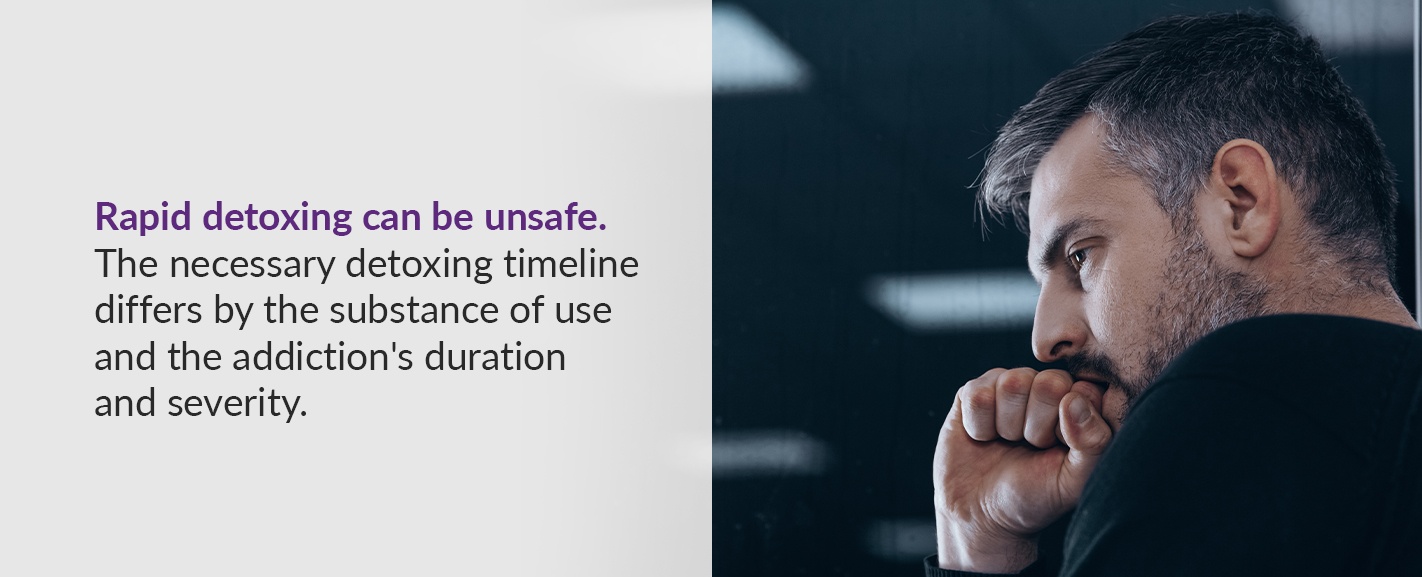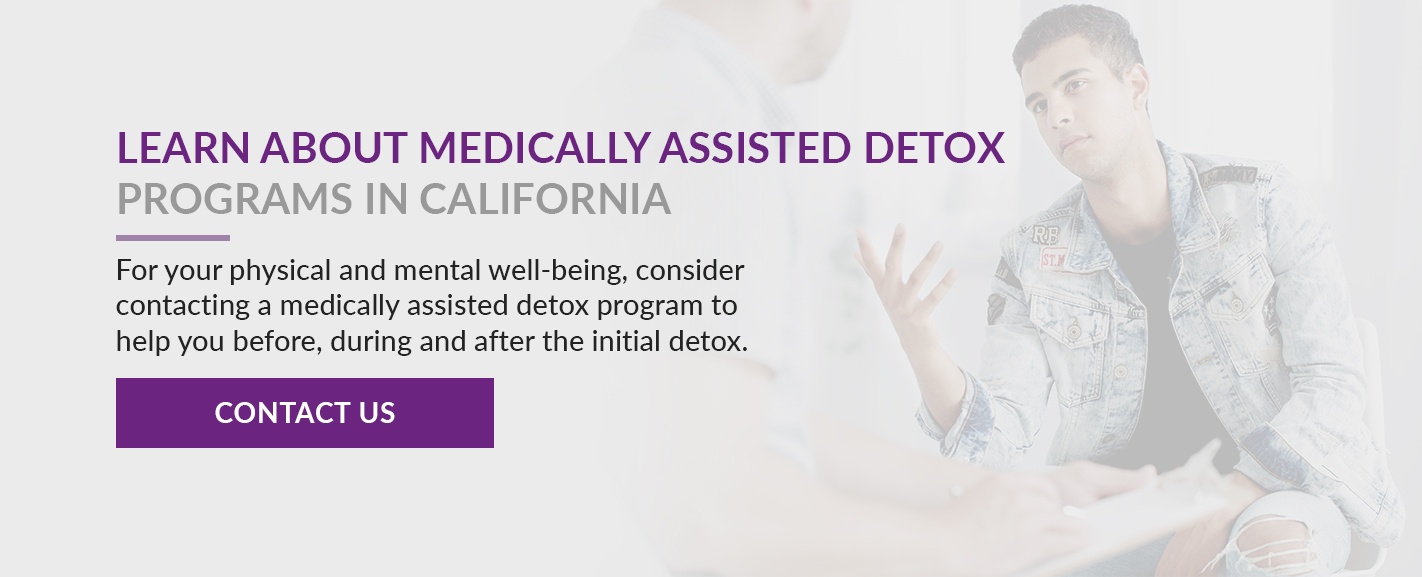

Content medically reviewed by Vicky Magobet, PMHNP-BC, on August 20, 2021.
Addiction recovery saves lives and opens doors to new opportunities. However, overcoming an addiction is a complex process requiring professional medical and mental health support. Detoxing — the process of allowing a substance to leave the body — can be an intimidating initial step of recovery. Many people living with substance use disorders fear the withdrawal symptoms associated with this phase.
Drug or alcohol dependency can lead to unpleasant withdrawal symptoms as the substance leaves the body, making recovery daunting for many. Detoxing is a crucial part of rehabilitation, requiring proper care and supervision. Myths about drug and alcohol detox are widespread, and this misinformation can be dangerous. Learn the truth about the detox process.
Some think detox programs are always unsuccessful, but that's not the case. While no drug or alcohol treatment method can guarantee recovery, a detox program with supervision, support systems and medical assistance increases the odds of effectiveness. Detoxing on its own is not a "cure" for substance abuse, as long-term psychological and emotional influences are also essential considerations. Addiction is more than a physical dependency on a substance. That's why mental health support and aftercare assistance are so vital. It's also one of the reasons at-home detox may not be effective.
Some have attempted to detox by quitting cold turkey, but undergoing this process without professional supervision is not advisable. Clearing your body of harmful toxins can be dangerous and challenging, and doing it alone can be unsuccessful. Detoxing may require a combination of inpatient and outpatient treatment for lasting results. Often, when someone tries to detox on their own, they give up as unpleasant withdrawal symptoms begin to set in.
These symptoms can be both physical and psychological. They can escalate and might be fatal in extreme cases — alcohol detoxing withdrawal symptoms could include seizures, hallucinations and dangerous shifts in your breathing. Drug detoxing withdrawal symptoms can be equally risky. For these reasons, it's crucial to have medical and psychological care available before attempting a detox. You also need access to psychological and emotional care after physical symptoms subside. Again, addiction is complex. Ridding your body of a substance is only the first step toward addiction recovery.

Rapid detoxing can be unsafe. The necessary detoxing timeline differs by the substance of use and the addiction's duration and severity. Age, genetics, family history and underlying conditions are also relevant. Though it may seem tempting to rush your healing process, it's best to take as much time as you need for a safe, long-lasting substance recovery.
The detox experience is different for everyone, so you should always work with a medical professional to identify and manage symptoms. Withdrawal symptoms' nature, severity and duration depend on the substance and the level of dependency. Without treatment, withdrawal from some substances can last weeks or even months.
The professionals in a detox center do everything they can to keep patients comfortable and safe. At Diamond House Detox, clients have medical, psychological and moral support throughout the process, in addition to private space to reflect. Detox centers minimize discomfort, but trying to detox at home without help or supervision may be painful or dangerous.
Addiction recovery is a complex process, and completing detox does not always mean you'll never use the substance again. Detox manages the physical withdrawal symptoms, but addiction alters the brain — drugs interfere with neurons sending, receiving and processing signals.
Specific drugs may damage your ability to feel pleasure from healthy activities. Others cause anxiety or irritability after corrupting the brain's amygdala. Some may impair your ability to control impulses by altering your prefrontal cortex. Effects like these take time and support to overcome — a single detox may not be enough to end an addiction. Staving off the cravings, emotions and dependency of addiction often requires support groups, therapy and other aftercare.
The thought of detoxing can be scary, but knowing what to expect may relieve some anxiety. Inpatient detoxing offers the medical, emotional and psychological support you need for a lasting recovery. With Diamond House Detox, the detox process follows these steps.

Taking the first step toward addiction recovery can be intimidating, but getting past an addiction will improve your quality of life in many ways. When you're no longer dependent on drugs or alcohol, you'll be able to focus on goals with your relationships, education, career or hobbies. These life improvements begin with an initial, supervised detox process.
For your physical and mental well-being, consider contacting a medically assisted detox program to help you before, during and after the initial detox. At Diamond House Detox, we offer individualized treatment, private rooms, professionally cooked meals and individualized psychological care using evidence-based methods. Our in-house medical team provides medically assisted detox as necessary. Learn more about our detox program and how we stand out as a rehabilitation center. If you're ready to begin the addiction recovery process, contact Diamond House Detox today.
Sources: